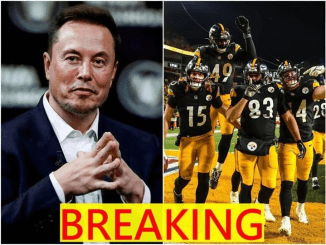The decision by former President Donald Trump to grant a broad pardon to a significant number of individuals involved in the January 6 Capitol riot has ignited intense political and legal discussions, receiving strong criticism from Democratic leaders while garnering considerable support from his base. This executive action, which impacts around 1,600 individuals, has rekindled the contentious debate surrounding one of the most polarizing incidents in contemporary American history.
Democratic leaders were quick to condemn the action, asserting that it establishes a perilous precedent and undermines the integrity of the legal system. Senate Majority Leader Adam Schiff expressed his disapproval vehemently, labeling the decision a “grotesque abuse of power” and cautioning that it legitimizes acts of political violence. He pointed out that many of those receiving pardons had committed violent offenses, including assaults on law enforcement officers who were defending the Capitol during that tumultuous event. Schiff’s comments reflect the profound frustration among legislators striving to hold accountable those responsible for the insurrection.
In a similar vein, former House Speaker Nancy Pelosi characterized the mass pardon as a betrayal of the courageous individuals who risked their lives to uphold democracy. “This decision sends a chilling message,” she stated. “It indicates to future extremists that they can violently assault our institutions without facing significant repercussions.” Pelosi has consistently emphasized the seriousness of the January 6 attack, and her remarks highlight concerns that such a decision may embolden those intent on undermining democratic processes in the future.
Numerous Democratic lawmakers have voiced apprehensions that these pardons could diminish public confidence in the government’s capacity to enforce the law impartially and consistently. Some contend that this executive order exemplifies Trump prioritizing his personal and political interests over the fundamental principles of the nation. Legal analysts have also cautioned that this decision may have extensive ramifications for how subsequent administrations address politically sensitive legal matters.

Despite significant criticism from Democratic leaders and legal experts, supporters of Trump have hailed the mass pardons as a long-overdue rectification of what they perceive as an unjust targeting of political dissidents. Numerous conservatives contend that the legal system has disproportionately focused on individuals who were merely engaging in protests, rather than committing serious crimes. They assert that the prosecutions were driven by political motives aimed at silencing dissent rather than a sincere pursuit of justice.
Among the defenders of the pardons is House Republican Marjorie Taylor Greene, who remarked that many of those arrested and prosecuted were everyday Americans who became swept up in the events. “The Biden administration weaponized the DOJ to pursue political adversaries,” Greene stated. “These pardons represent a move towards restoring equity.” Greene, along with other notable Trump supporters, has argued that the government’s reaction to the Capitol riot was excessive and intended to convey a political message rather than merely enforce the law.
Following the signing of the executive order, Trump issued a statement defending his choice as an act of compassion and fairness. “The radical left aimed to ruin the lives of patriotic Americans for simply opposing a rigged system,” he asserted. “These great patriots should never have been treated as criminals.” His remarks illustrate the profound divide in perspectives among various political factions regarding the events of January 6 and the subsequent legal repercussions faced by those involved.
While Trump’s supporters view the mass pardons as a triumph for justice, legal scholars and political analysts are raising concerns about the wider implications of this decision. Experts in constitutional law caution that granting clemency to individuals involved in an assault on a democratic institution establishes a concerning precedent. Many argue that such an action effectively communicates to future political extremists that violence may be tolerated.
Laurence Tribe, a distinguished legal scholar, warned that this decision may undermine the fundamental principle of accountability. He posed a critical question: “If those who assault democracy face no significant repercussions, what prevents a recurrence?” His apprehensions are shared by former federal prosecutor Glenn Kirschner, who noted that no contemporary U.S. president has granted pardons on such a scale to individuals convicted of attacking the government. “This represents a wholly unprecedented and troubling chapter in American history,” Kirschner stated. “While presidents have previously issued contentious pardons, none have done so with such extensive implications for our democratic integrity.”
The decision to pardon the January 6 rioters also prompts broader inquiries regarding the boundaries of presidential authority and the future of executive clemency. Traditionally, presidents have exercised their clemency powers to rectify perceived wrongs, yet Trump’s recent actions seem to transcend established norms. Some legal analysts express concern that this precedent may encourage future presidents to utilize their pardon powers in a similarly expansive manner, potentially shielding political allies from accountability.
Beyond the legal implications, Trump’s decision may also carry significant political ramifications. Numerous analysts contend that this mass pardon will further shape his political legacy and affect his prospects in upcoming elections. Trump continues to be a formidable figure within the Republican Party, and many of his supporters interpret this as yet another instance of him resisting what they view as governmental overreach. By characterizing the January 6 prosecutions as a partisan witch hunt, Trump has bolstered his appeal among voters who feel marginalized by the current administration.
Conversely, critics assert that these mass pardons could alienate moderate and independent voters, many of whom regard the Capitol riot as a troubling episode in American history. Presidential historian Douglas Brinkley suggested that Trump’s decision will be remembered as a pivotal moment.


